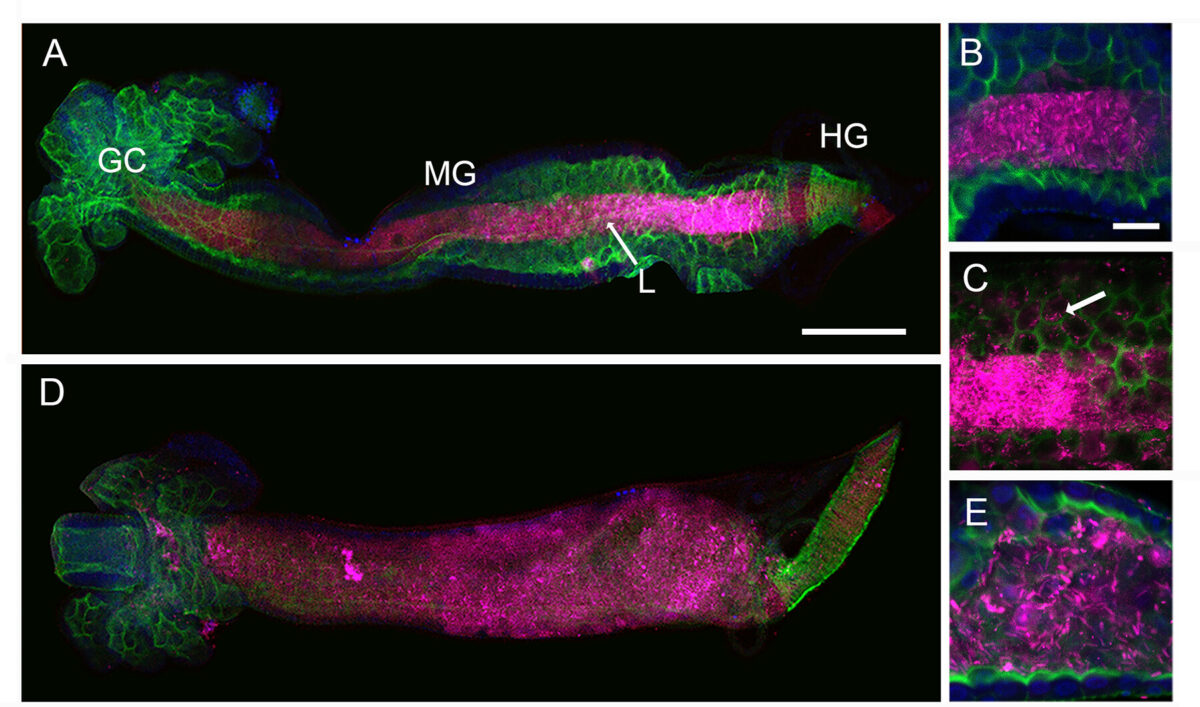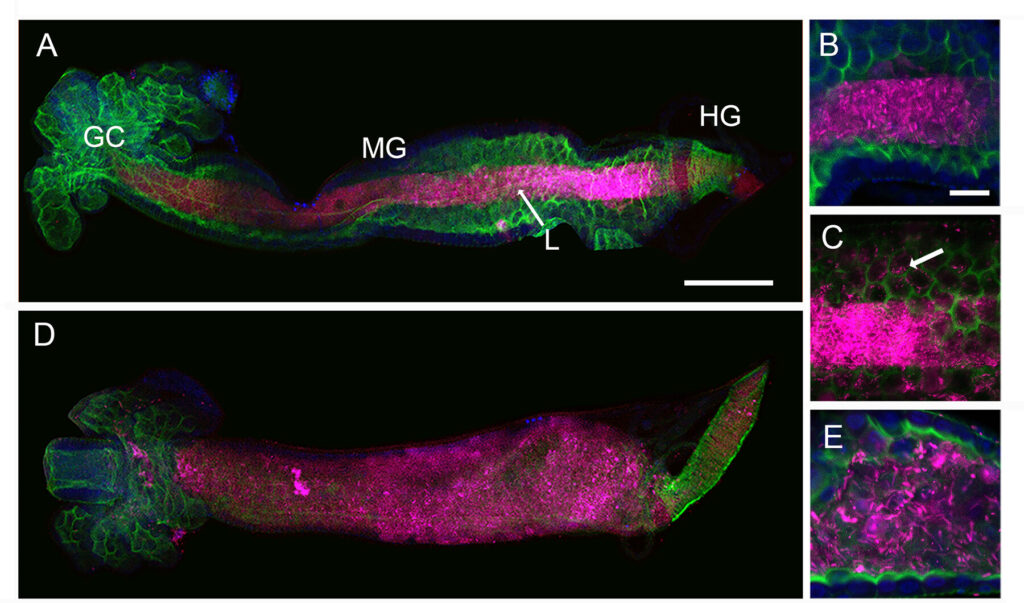Increased environmental microbial diversity reduces the disease risk of a mosquitocidal pathogen


The host-specific microbiotas of animals can both reduce and increase disease risks from pathogens. In contrast, how environmental microbial communities affect pathogens is largely unexplored. Aquatic habitats are of interest because water enables environmental microbes to readily interact with animal pathogens. Here, we focused on mosquitoes, which are important disease vectors as terrestrial adults but are strictly aquatic as larvae. We identified a pathogen of mosquito larvae from the field as a strain of Chromobacterium haemolyticum. Comparative genomic analyses and functional assays indicate this strain and other Chromobacterium are mosquitocidal but are also opportunistic pathogens of other animals. We also identify a critical role for diversity of the environmental microbiota in disease risk. Our study characterizes both the virulence mechanisms of a pathogen and the role of the environmental microbiota in disease risk to an aquatic animal of significant importance to human health.
Zhiwei Kang, Vincent G Martinson, Yin Wang, Kerri L Coon, Luca Valzania, Michael R Strand. mBio. 2023 Dec 6:e0272623. doi: 10.1128/mbio.02726-23.
